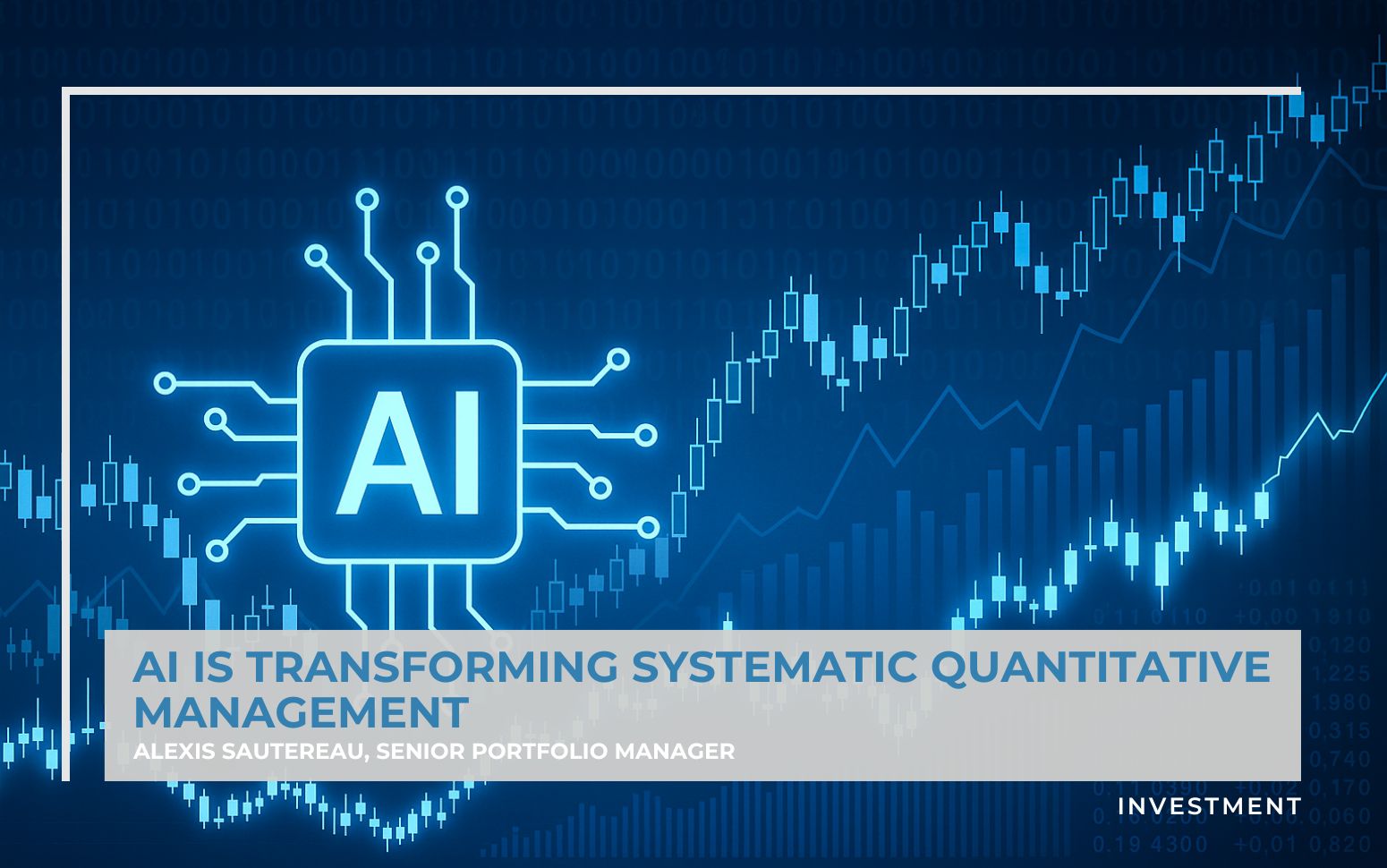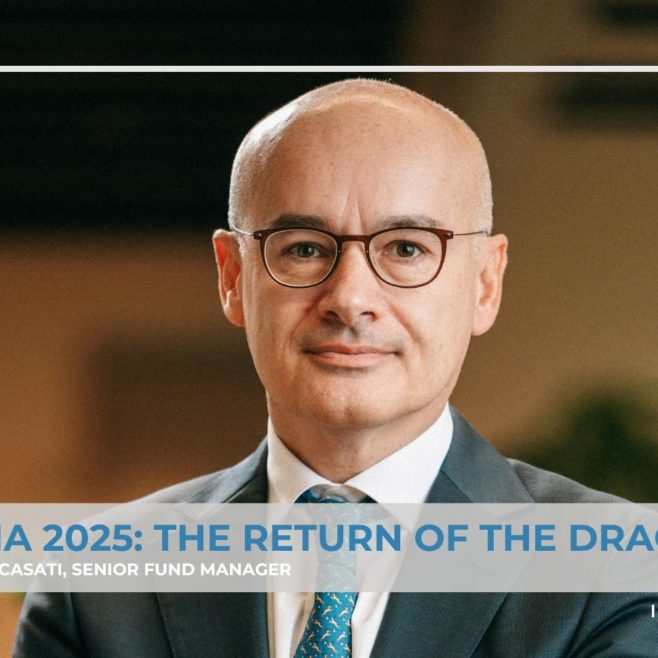
AI is transforming systematic quant investing

AI Is Transforming Systematic Quant Investing
Its impact is profound across all fronts: markets, operations, talent requirements and the financial ecosystem.
As artificial intelligence evolves from a mere auxiliary tool to a central decision-making component, the landscape of systematic quantitative hedge funds finds itself at a critical crossroads. This transformation carries far-reaching implications, not only for market dynamics and fund operations but also for talent requirements and the broader financial ecosystem.
Will more efficient markets eliminate alpha?
As AI becomes ubiquitous within quant funds, markets are likely to grow increasingly efficient, reducing the number of pricing anomalies that hedge funds traditionally exploit. These systems are capable of processing vast volumes of data and identifying subtle patterns at unprecedented speed, thereby quickly arbitraging inefficiencies that once produced alpha. The more funds deploy similar AI methodologies analyzing the same data sets, the faster such opportunities will vanish. The result? A scenario where thousands of ultra-powerful computers compete over ever-diminishing slivers of profit.
This accelerated erosion of alpha is fueling a technological arms race, where competitive advantage increasingly hinges on either superior AI capabilities or access to exclusive data sources. Funds lacking cutting-edge AI infrastructure will find themselves at a significant disadvantage, potentially triggering consolidation in the industry as smaller players struggle to maintain performance.
A systemic risk: homogenization
However, the widespread adoption of AI in quantitative funds also introduces new forms of systemic risk. When many funds rely on similar algorithms trained on overlapping data sets, they may respond in the same way to market events, thereby amplifying price movements and potentially triggering flash crashes or liquidity crises. This herd-like algorithmic behavior could increase correlation between ostensibly diverse strategies, undermining the portfolio diversification sought by institutional investors. Are we on the verge of automating financial crises with surgical precision?
Unlike human decision-making, which naturally varies, AI systems could converge on optimal solutions, creating dangerous uniformity in market positioning. This homogenization represents a novel form of systemic vulnerability that regulators and risk managers are only beginning to understand.
Wanted: new talent profiles
The rise of AI in quant funds is redefining talent requirements. Traditional quantitative profiles, mathematicians and physicists with financial acumen, must now be complemented or replaced by AI specialists, machine learning engineers and data scientists. This shift presents both opportunities and challenges for the industry’s workforce.
Furthermore, hedge funds will increasingly compete with tech firms for top AI talent, likely pushing compensation even higher for individuals with both machine learning expertise and a solid grasp of financial markets. Simultaneously, certain traditional quant roles may become obsolete as AI systems take over modeling and strategy development tasks previously handled by humans.
Data as a competitive edge
In an AI-dominated environment, proprietary data will become an increasingly valuable asset. Funds will invest heavily in unique data sources: alternative data, private information or novel combinations of existing datasets that provide a competitive edge. This emphasis on data exclusivity may lead to acquisitions of data providers and investments in proprietary data collection infrastructure. What were once mere commodities (data) are transforming into scarce resources.
Looking ahead, successful funds will be those that excel not only in data acquisition but also in preprocessing, feature engineering and quality assurance, producing clean, structured inputs that maximize AI performance. The ability to turn raw data into machine-learning-ready formats will be a critical source of competitive advantage.
Major regulatory challenges ahead
In a hedge fund landscape increasingly shaped by AI, regulators will face significant challenges. Traditional risk management and disclosure frameworks may prove inadequate for supervising complex, adaptive AI systems whose decision logic continuously evolves. Issues such as algorithmic transparency, explainability and fairness will become increasingly important regulatory concerns.
Moreover, as AI systems become more sophisticated, pinpointing responsibility for market disruptions becomes more difficult. Was a flash crash the result of a coding error, faulty data or emergent AI behavior? These questions will greatly complicate regulatory oversight and accountability.
More than a technological shift, a structural overhaul
The rise of AI in systematic quant investing is not merely a technological upgrade, it represents a fundamental restructuring of financial markets. While it may enhance efficiency and unlock new sources of alpha, it simultaneously introduces novel risks and challenges. Funds, investors and regulators must rapidly adapt to this new paradigm, where competitive advantage is increasingly derived from AI capabilities, data exclusivity and the human expertise needed to operationalize both effectively.
In the meantime, one must ask: should we celebrate the fact that humanity is entrusting its financial system to algorithms that even their creators do not fully understand?
Past performance is not indicative of future results. The views, strategies and financial instruments described in this document may not be suitable for all investors. Opinions expressed are current opinions as of the date(s) appearing in this material only. References to market or composite indices, benchmarks or other measures of relative market performance over a specified period of time are provided for your information only. NS Partners provides no warranty and makes no representation of any kind whatsoever regarding the accuracy and completeness of any data, including financial market data, quotes, research notes or other financial instruments referred to in this document. This document does not constitute an offer or solicitation to any person in any jurisdiction in which such offer or solicitation is not authorized or to any person to whom it would be unlawful to make such offer or solicitation. Any reference in this document to specific securities and issuers are for illustrative purposes only, and should not be interpreted as recommendations to purchase or sell those securities. References in this document to investment funds that have not been registered with the Finma cannot be distributed in or from Switzerland except to certain categories of eligible investors. Some of the entities of the NS Partners group or its clients may hold a position in the financial instruments of any issuer discussed herein, or act as advisor to any such issuer. Additional information is available on request. © NS Partners Group





